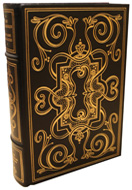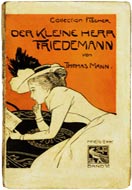
Paideia at Play: Learning and Wit in Apuleius.
RIESS, W., (ed.),
Verkäufer
Scrinium Classical Antiquity, Aalten, Niederlande
Verkäuferbewertung 5 von 5 Sternen
![]()
AbeBooks-Verkäufer seit 18. September 2013
Beschreibung
Beschreibung:
Barkhuis, Eelde, 2008. XXI,302p. Hardcover. Bestandsnummer des Verkäufers 21767
Bibliografische Details
Titel: Paideia at Play: Learning and Wit in ...
ZVAB ist ein Internet-Marktplatz für neue, gebrauchte, antiquarische und vergriffene Bücher. Bei uns finden Sie Tausende professioneller Buchhändler weltweit und Millionen Bücher. Einkaufen beim ZVAB ist einfach und zu 100% sicher — Suchen Sie nach Ihrem Buch, erwerben Sie es über unsere sichere Kaufabwicklung und erhalten Sie Ihr Buch direkt vom Händler.
Millionen neuer und gebrauchter Bücher bei tausenden Anbietern
Antiquarische Bücher
Von seltenen Erstausgaben bis hin zu begehrten signierten Ausgaben – beim ZVAB finden Sie eine große Anzahl seltener, wertvoller Bücher und Sammlerstücke.
Erstausgaben
Erstausgaben sind besondere Bücher, die den ersten Abdruck des Textes in seiner ursprünglichen Form darstellen. Hier finden sie Erstausgaben von damals bis heute.
Gebrauchte Bücher
Ob Bestseller oder Klassiker, das ZVAB bietet Ihnen eine breite Auswahl an gebrauchten Büchern: Stöbern Sie in unseren Rubriken und entdecken Sie ein Buch-Schnäppchen.


